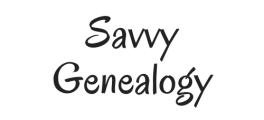How Can a Research Log Help Me be a Better Genealogist?
Hey Friends! How’s it going this week? Any new genealogy discoveries? Any new brick walls? Have you tried applying new organization tools this week? Anyway, it’s great to share with you more of what has helped me with my genealogy. So let’s get started!
This week I’m sharing another organizing tool that has really helped me get even better at my research.
Have you ever felt as you were searching for your ancestor that you had already gone down this path before? Or when researching one ancestor, you suddenly get a clue for another ancestor that leads you down a completely different path? Then did you try to jump back on your original path only to find that you had lost your place? I have been in your shoes more often then I want to admit. Why do we do that? Why is it so hard to get our genealogy and ourselves organized?
Well, it wasn’t until I learned about one important tool that both professional genealogists and family historians use that I finally felt like I was getting organized. That tool is called a Research Log or a Research Calendar. This has saved me more times than I can count. I use it to keep myself organized, efficient, and on track.
What is a Research Log? It’s a chart, table, list, etc. that keeps track of your progress as you research. I’ll tell you how I do it; however, there are many ways that people use these logs.
| Ancestor: | |||||
| Research Log Objective | Date of Search | Call Number | Description of source (author, title, pages, year, website, index) | Comments (Purpose of search, results, years and names searched, be specific) | Document Number |
I created this table for my research log. This is what works for me, but you can create your own.
In column one, I write the ancestor’s name then the question or goal that I need answered.
In column two, this is the actual date of the search.
In column three, I would write a book’s call number if I was searching within a book.
In column four, this is where I would put the full description of where I found the record. I would write the website, the page number, entry number, image number, the person in the record, the year the record was made, and when I accessed the original record.
In column five, I would write what was in the record. The record would state people, dates, residences, relationships, ages, occupations, etc. This is also where I would put any negative results as well. Anything that I didn’t find at that website or database would go there. So records that I did find and that I didn’t find would go in this column.
In column six, I would number my records in the order that I find them. Then when I want to find a previous record, I know what number it is. I only number original records, not indexes or other secondary records.
Here is an example of a filled out research log. These are my Scandinavian ancestors. This was a search into original Norwegian church books. Therefore, the source information is in Norwegian except for when I typed in my ancestor’s name and when I accessed her record.

I have this log open while I’m searching the original records. It makes it easier to record my findings as I go instead of trying to fill it in later. I also record my thoughts, speculations, and analysis on the log. The log helps me stay on track and not lose my place when I’m researching. If I have to stop my work and I don’t get back to it until days later, then I just look where I left off on my research log. This helps me move forward in my research instead of backtracking. In addition, each log will look different because each ancestor will have a different search path. This tool is essential if you want to up level your family history research.
So take the time to find out what works best for you this week. Practice using a research log and see how it helps you be a better genealogist.
I hope that helps. I know that as I’ve used this tool in my research, I’ve noticed a big difference in the quality and efficiency of my research.
Good luck and happy hunting!
Tiffany
